This Is What Spanish Looks Like
A hundred years of love, lavender, and resistance they still don’t understand.
Yesterday, we celebrated my grandmother’s 100th birthday.
A hundred years.
Let that sit for a second.
One hundred years of life.
Of children. Of sacrifice. Of stories told and untold.
Of laughter and grief and meals and rosaries and stubborn love and quiet survival that looks like softness on the outside, but is made of unshakable steel underneath.
She had thirteen children.
Over fifty grandchildren.
Countless great-grandchildren.
And now, a new generation of great-great-grandchildren—wide-eyed, running around the party in sparkly dresses and clip-on tiaras, climbing onto chairs, sneaking cupcakes when they thought no one was looking.
We wore lavender.
We wore florals.
We wore heels and eyeliner and pearls and capias moradas to honor her.
We smiled for family photos. We told old stories.
And we held her hand like it was holy.
Because it is.
Because she is.
I looked around that room yesterday—at this enormous, beautiful, chaotic family—and all I could think was:
This is what Spanish looks like.
Not what they want it to look like.
Not what ICE agents are trained to watch for.
Not what the clipboard checkers think they can sort through in a parking lot.
It looks like me.
It looks like my children.
It looks like blonde hair and green eyes.
It looks like red hair and white skin.
It looks like olive skin and curls and soft brown eyes and freckles.
It looks like a kaleidoscope. Like joy. Like stubbornness. Like love that doesn’t fit into one damn checkbox.
And while we celebrated her life—her story—two of my uncles were in the room with us.
Both of them are Marines.
One was once stationed at Camp Pendleton.
The other earned a Purple Heart in Vietnam.
So when I hear the President of the United States threaten to send the Marines from Pendleton against protestors in LA, let me be crystal clear:
You’re talking about sending my family to turn on Americans.
Citizens. Protestors. Neighbors.
And people whose only crime is being a different kind of Spanish.
Because people are marching against ICE raids?
Because they’re protesting a government that thinks it can arrest people based on how Hispanic they look?
I couldn’t stop thinking about Los Angeles.
Couldn’t stop thinking about the ICE agents.
The raids.
The National Guard.
The mask ban.
The way protestors are being treated like threats while government agents march fully armored through neighborhoods like it's wartime.
And I really couldn’t stop thinking about the masks.
Because it wasn’t that long ago that we were being screamed at in grocery stores for wearing masks to protect each other.
And now?
They show up masked in full riot gear, in balaclavas, in tactical armor.
But when peaceful protestors show up wearing bandanas to protect their faces,
Trump publicly declares they “will not be allowed to wear masks.”
Excuse me?
In 2021, a cloth mask was tyranny.
But in 2025, a blacked-out tactical mask is just another day on the job?
It was never about the masks.
It was never about the law.
It’s always been about control.
It’s always been about who gets to be safe—and who doesn’t.
And now, in this version of America, they are showing up to homes and stores and parking lots and arresting people based on what they think “Spanish” looks like.
But let me tell you something:
You can’t profile culture.
You can’t detain a bloodline.
You can’t deport the soft strength that raised me. Or my cousins. Or my uncles. Or my sons.
Because we’re not just here.
We’ve been here.
We’re in the birth records and the census sheets.
We’re in the prayer candles and the office break rooms and the second-grade classrooms and the board rooms and the spreadsheets and the lungs of this country.
You don’t get to question our belonging.
You don’t get to erase us with policy.
And you sure as hell don’t get to look at my grandmother and everything she built and decide you know what Spanish looks like.
You don’t.
You never did.
And you never will.
And let’s not pretend this is new.
We’ve been here before.
Our families have been surviving systems like this for generations—
with grit, with grace, with grief that didn’t get time to rest.
We’ve carried burdens the architects of Project 2025 could never fathom.
Because they don’t know hardship.
They only know entitlement.
They are the sons of silver spoon families,
first-gen immigrants who call others “illegals” with the ink still wet on their own visas,
men married to immigrants who had the audacity to climb the ladder and then pull it up behind them.
They don’t know what it means to sweat for your next meal.
To stay quiet when your language is the wrong one.
To build something from nothing with no net beneath you.
That’s why they throw tantrums.
That’s why they stamp their feet and scream about stolen power.
Because they’ve never had to earn it.
But we have.
We’ve earned it a thousand times over.
In labor.
In sacrifice.
In silence.
In songs passed down through generations.
In names held tightly and stories never told.
If my grandmother taught me anything, it’s this:
We do not scare easy.
Not when we’re misunderstood.
Not when we’re underestimated.
Not when we’re hunted.
We do not run.
We do not give up.
We do not disappear.
We plant our feet.
We smile for photos.
We bring rice and beans to the potluck and coquito to the Christmas party.
We get louder when the microphones get turned off.
We show up in pastels and big earrings, and we raise the next generation like the magic and fire they’re forged from.
This is what Spanish looks like.
A century deep.
A thousand names strong.
Raised by a woman who taught us:
We don’t back down.
We carry it forward.
And forward looks like:
The sound of Spanish music.
The maracas.
The güiro.
The bongos.
The timbales.
The rhythm of a people who’ve survived everything.
We danced the salsa.
We danced the merengue.
We sang.
And she danced.
At 100 years old, our grandmother danced.
The mayor of the city stood beside her and delivered a proclamation—honoring her love, her commitment to family, her devotion to her church, and her decades of care for the community.
But above all?
We loved.
Loudly. Passionately. Without apology. Without fear.
That is what they’ll never understand.
That is what we carry forward.
And it will never be erased.


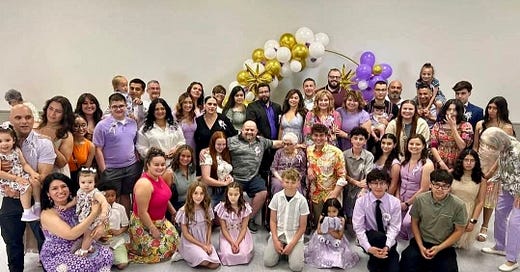


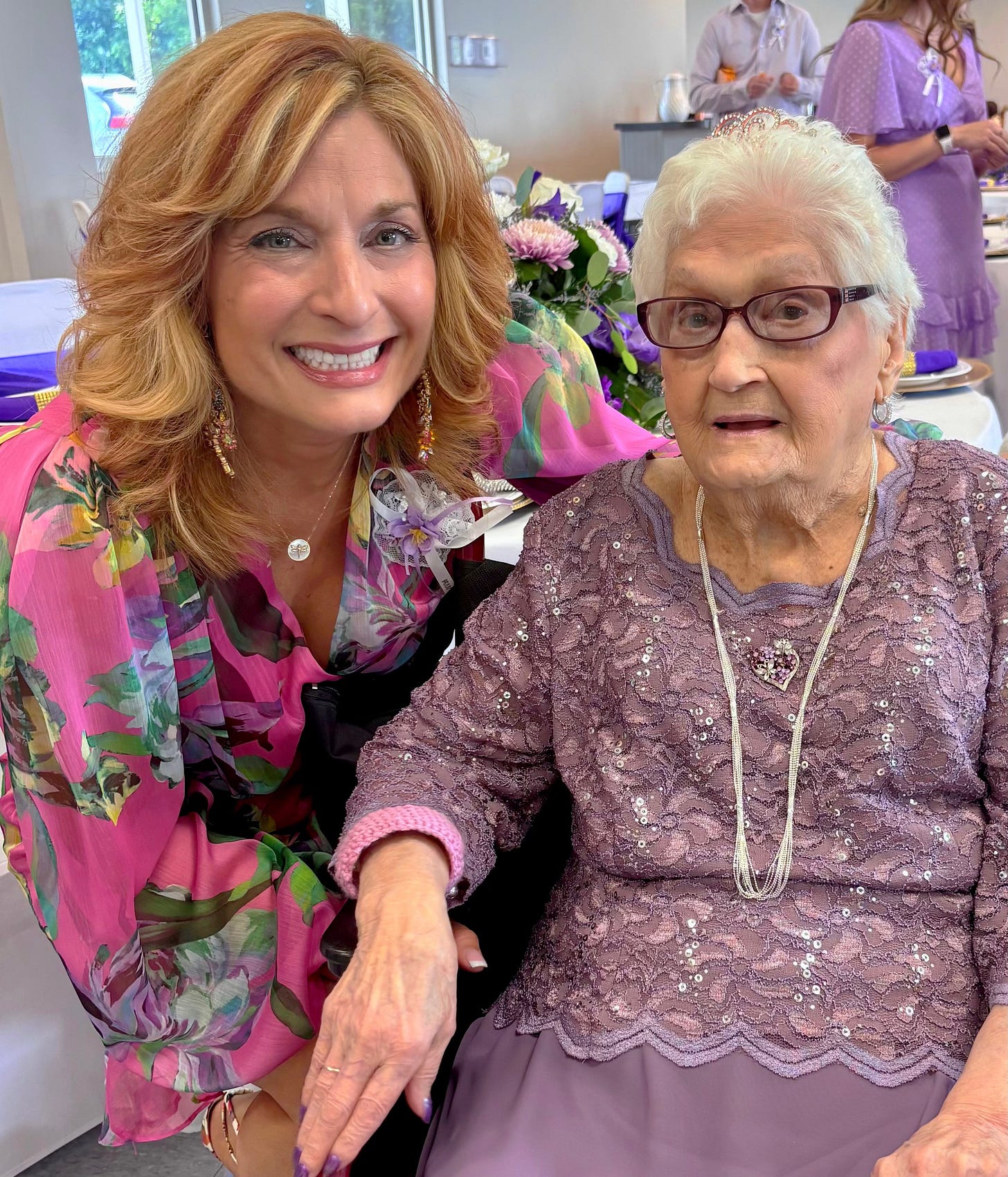

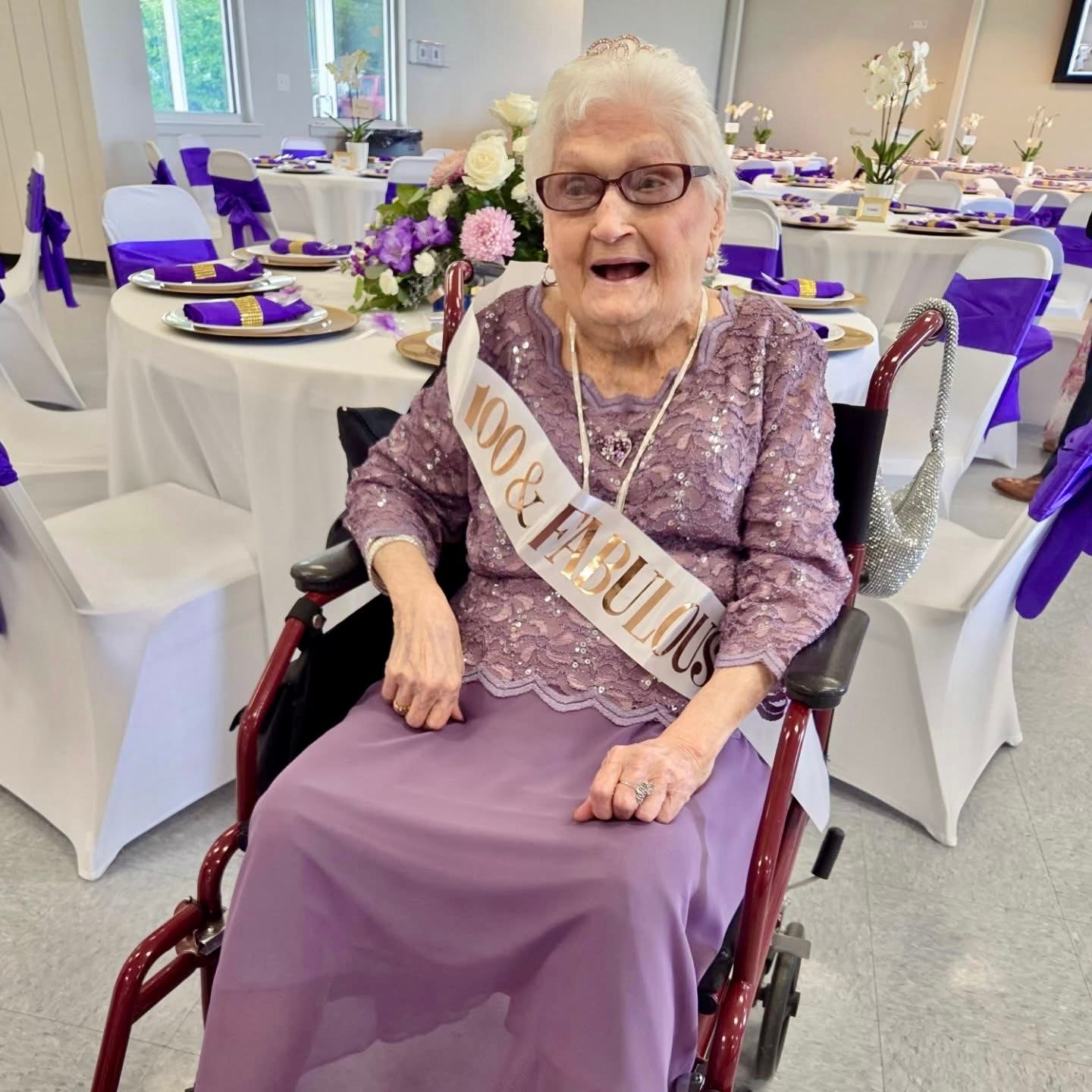

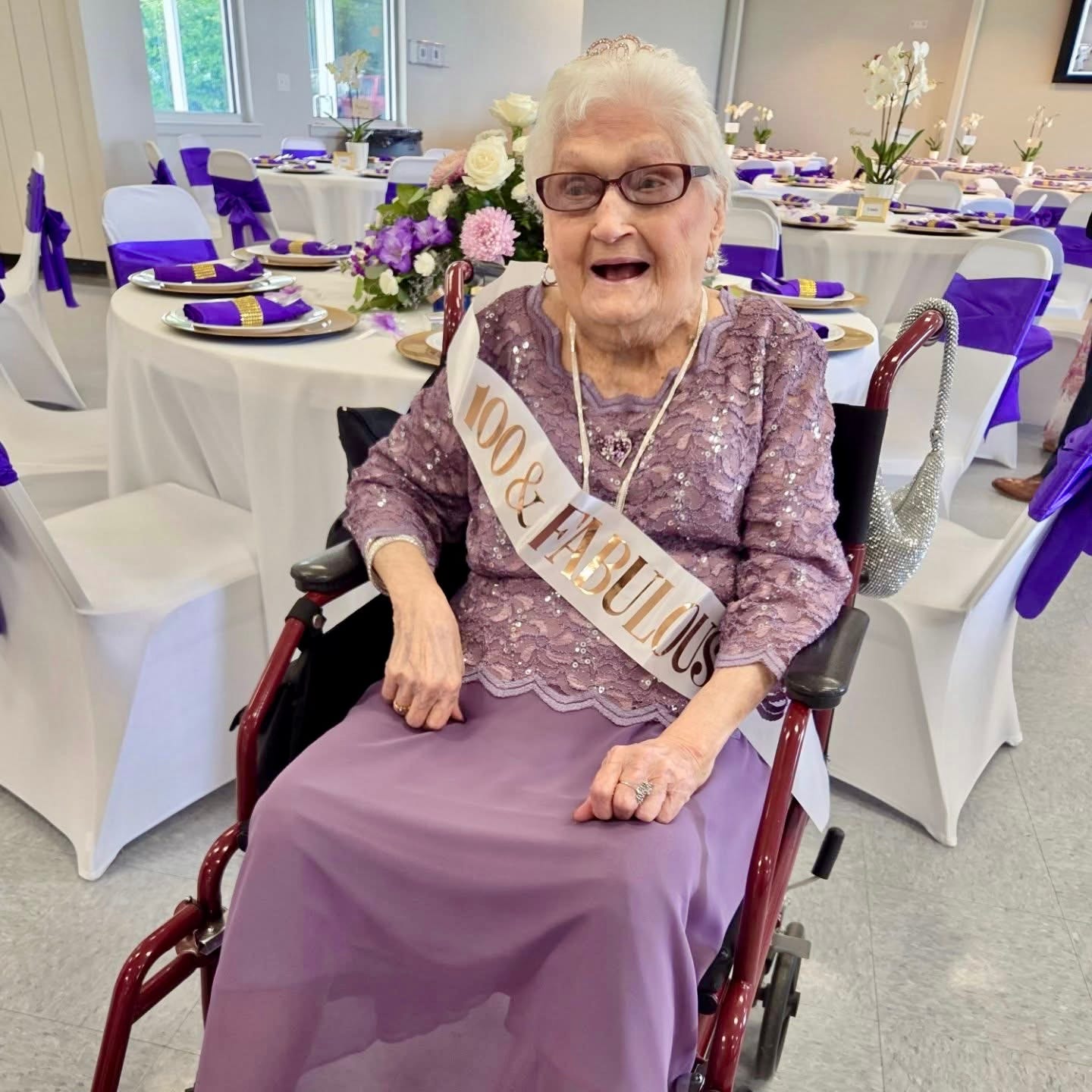
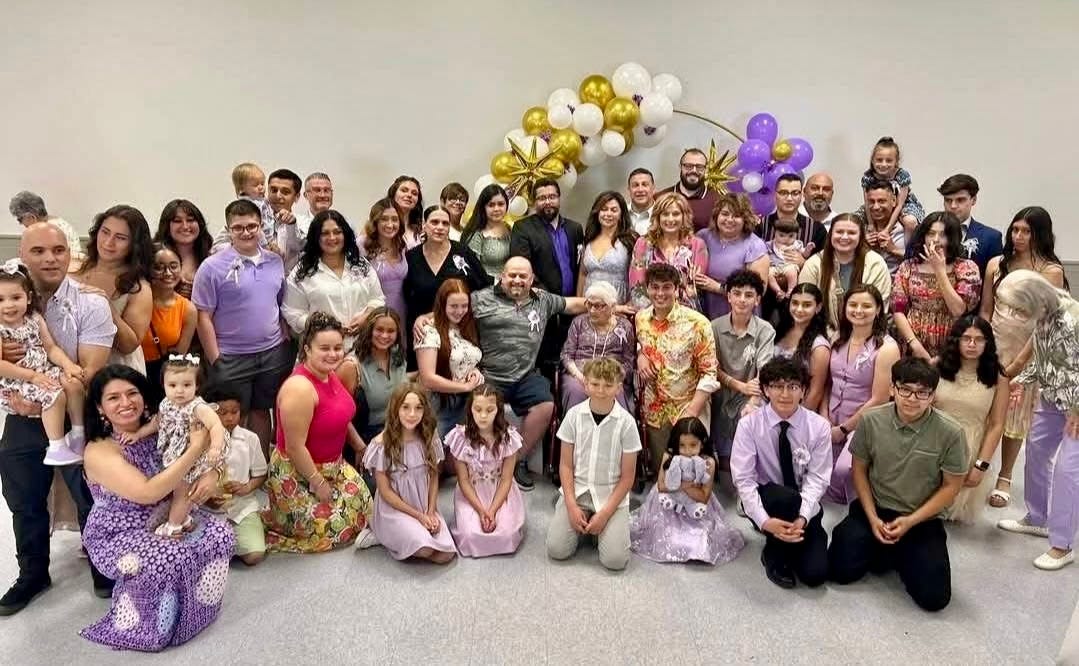
You have every reason to celebrate and be proud! What a beautiful family!!! It should inspire all of us to join hands and make the world better.
Thank you for sharing. It’s interesting that so many people do not know this.